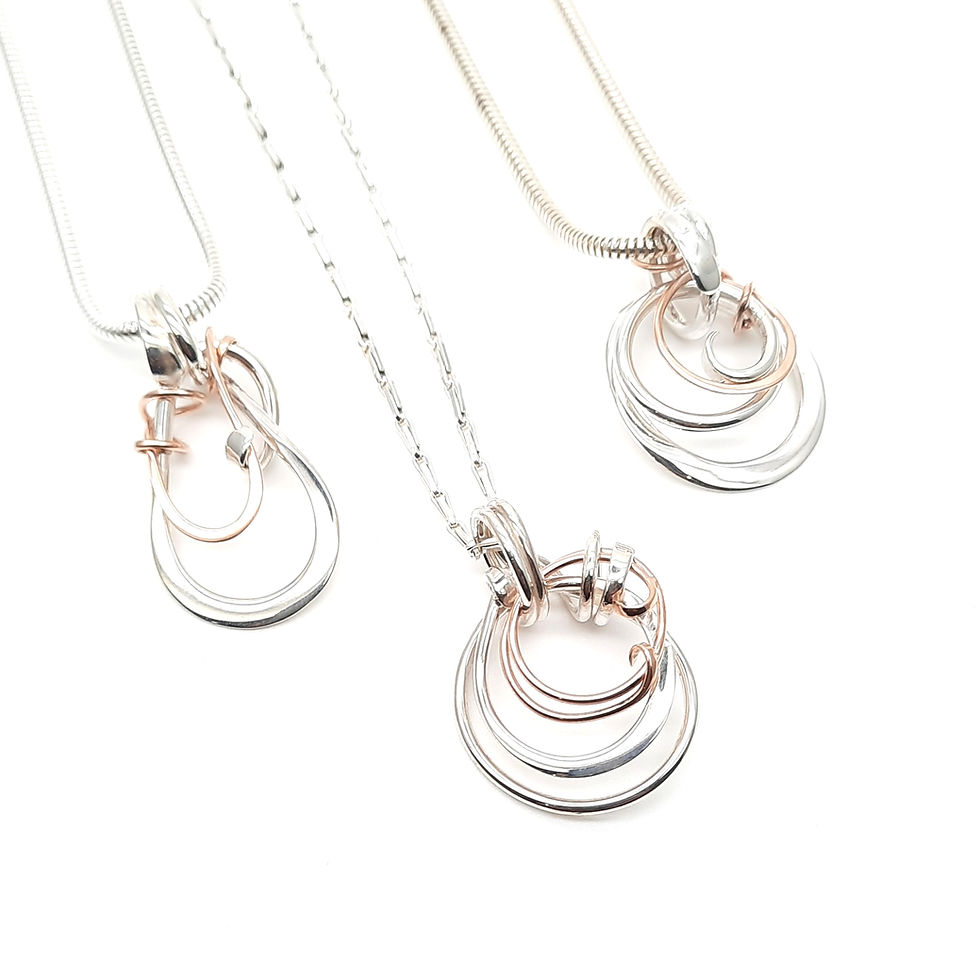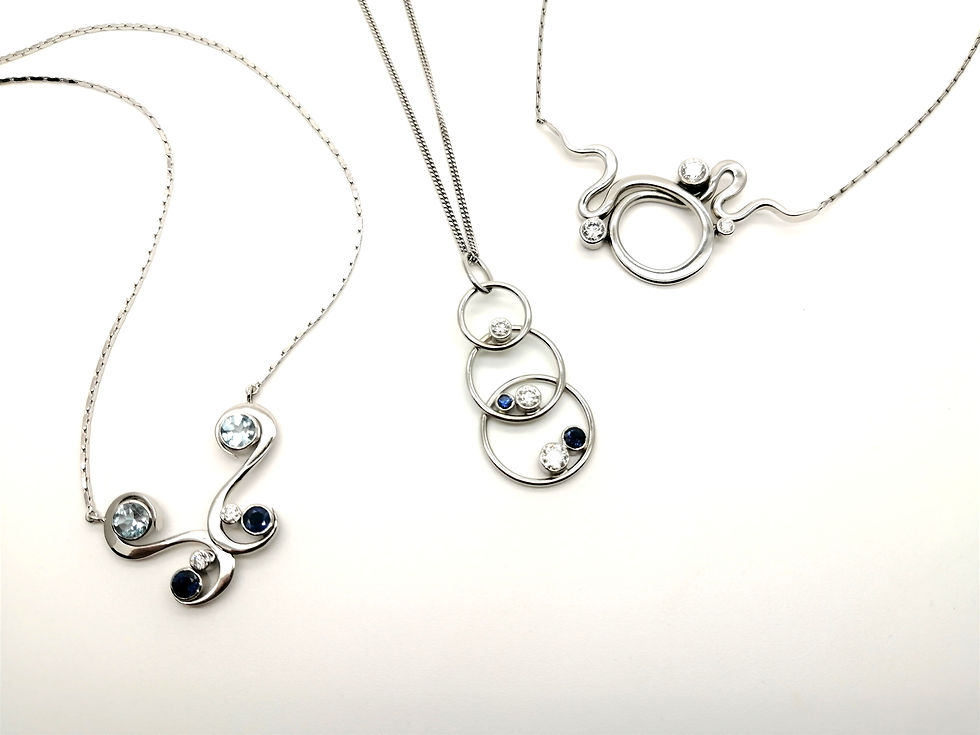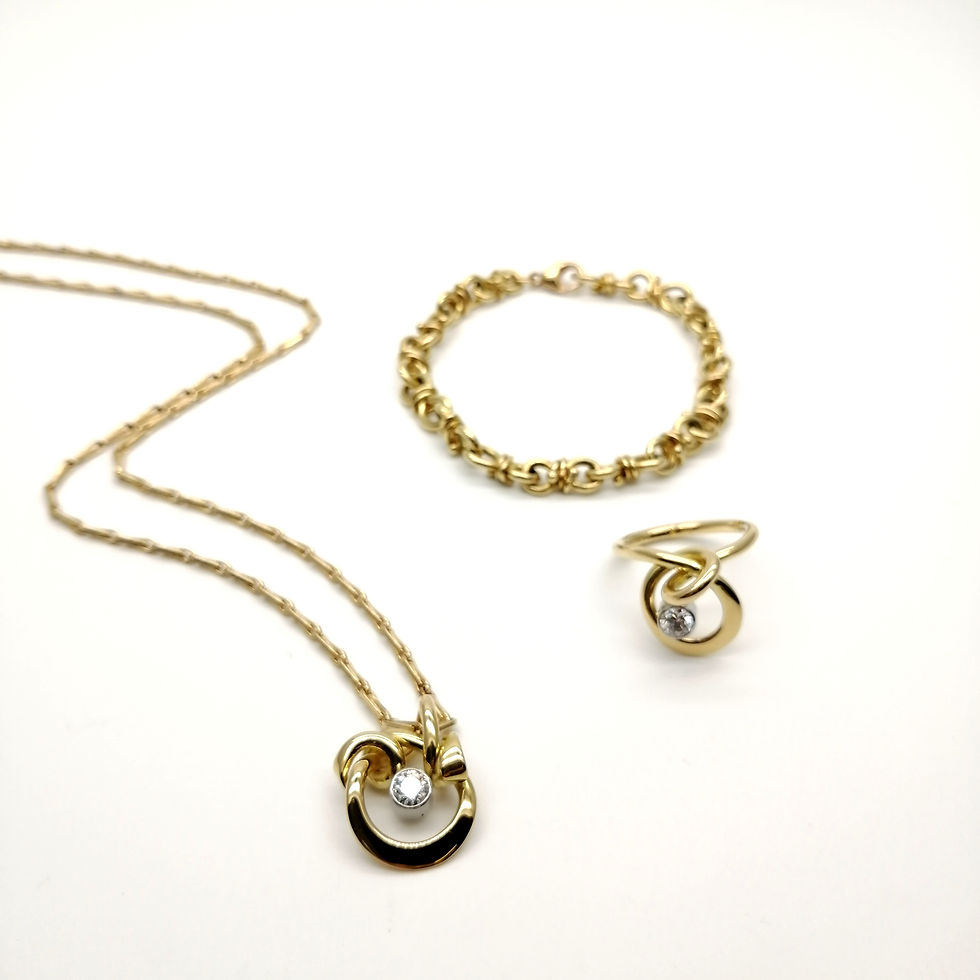PRECIOUS METALS
- nottingham27
- Aug 9, 2025
- 3 min read
Updated: Aug 12, 2025
by

All jewellery sold in the UK must have a British hallmark.
A hallmark is a selection of stamps marked into precious metals; gold, silver, platinum and palladium to show that the item has been independently tested and can guarantee that it conforms to the legal standards of purity.
A full UK hallmark will include a; sponsor mark which tells you the person or company registered with an assay office, a millesimal fineness mark which indicated the metal type and quality, an assay office mark to say which assay office it was tested at and a date letter mark.

Pure silver is 99.9% silver but is too soft to make into durable pieces of jewellery, 7.5% copper alloy is added to strengthen it creating sterling silver or ‘925 silver’ which we use in our Cathy Stephens Silver collections.
Silver is a versatile metal due to its malleability, making it a lovely metal to work with and allows the intricate twists and swirls in Cathy’s unique pieces.
Silver is a more affordable metal to go for, it is a great option if you would like a heavy solid piece that is still of great quality but without the big price tag. We would steer away from setting precious gemstones and diamonds into silver because of its softness, instead we would choose platinum or 18ct gold as it is much more durable and a safer option for a more expensive stone.
Platinum vs 18ct White Gold
When deciding whether to go for platinum or white gold we will always advise on platinum being your best option.
Platinum is a naturally white metal, dense and durable having 95% purity, the remaining 5% is made up of cobalt or other metals. Whereas white gold is durable but is more likely to scratch than platinum. As well as this white gold isn’t naturally white, it is 75% gold and combined with other metals such as palladium and nickel or zinc it is then plated in rhodium to maintain its white colour. You will have to keep up with maintaining 18ct or 9ct white gold over time as the rhodium plating wears off. Prices start from £45 to replate a ring, prices will increase when plating bigger items such as bracelets and necklaces.
Platinum is also currently less expensive than 18ct gold!

9ct vs 18ct
18ct gold is much purer than 9ct gold containing 750 parts of 1000 gold whereas 9ct is only 375 parts gold, this can visibly be seen when comparing the two metals, 18ct gold is much richer in colour. The remaining percentage is made up of other alloys which are added to improve durability and alter the colour.
9ct gold is generally more durable and technically harder, scoring higher on the Mohs scale, this is due to the higher proportion of alloys. However, this doesn’t mean it is more resilient in the long term, 9ct gold is in fact more brittle making it less resistant to knocks and scratches, it is also harder to work with compared to 18ct.
With this in mind you should always be aware of the effects of wearing 9ct and 18ct gold next to each other. For example, you should avoid wearing 9ct rings next to 18ct or wearing a pendant on a chain of different gold purities, this is because the 9ct piece is much harder and will wear away the 18ct.

Both our Groby and Nottingham stores have a large selection of Platinum, Gold and Silver jewellery available.
We are always happy to take on commissions in all three beautiful metals and take great pleasure in creating that perfect, unique piece.





Comments